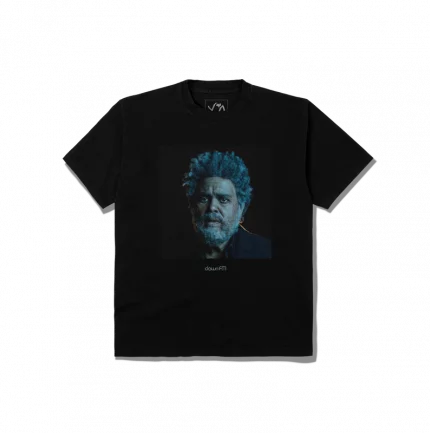Anxiety is a pervasive and often debilitating condition that affects millions of people worldwide. While conventional treatments like medication and therapy can be effective, an increasing number of individuals are turning to holistic approaches to address anxiety from the inside out. Holistic anxiety treatment recognizes the interconnectedness of mind, body, and spirit, aiming to restore balance and promote well-being on multiple levels. In this comprehensive article, we will delve into various holistic approaches to anxiety treatment, exploring the mind-body connection, alternative therapies, lifestyle modifications, and the profound impact of nutrition on mental health.
Understanding the Mind-Body Connection
The mind-body connection is a fundamental concept in holistic anxiety treatment. It acknowledges that mental and emotional well-being is intricately linked to physical health. Practices such as mindfulness meditation, yoga, and tai chi emphasize this connection, encouraging individuals to cultivate awareness of their thoughts and sensations in the present moment. These practices not only help alleviate anxiety symptoms but also promote overall mental clarity and resilience.
Mindfulness meditation, in particular, has gained significant attention for its ability to reduce stress and anxiety. By focusing on the breath and observing thoughts without judgment, individuals can develop a more balanced and harmonious relationship with their minds. Numerous studies have demonstrated the positive impact of mindfulness on anxiety, with participants reporting reduced symptoms and improved quality of life.
Alternative Therapies for Anxiety Relief
Holistic anxiety treatment extends beyond conventional methods, embracing a variety of alternative therapies that address the root causes of anxiety. Acupuncture, an ancient Chinese practice involving the insertion of thin needles into specific points on the body, has shown promise in reducing anxiety symptoms. The stimulation of these points is believed to rebalance the flow of energy, or qi, within the body, promoting a sense of calm and well-being.
Another alternative therapy gaining popularity is aromatherapy, which utilizes the aromatic compounds of essential oils to evoke a therapeutic response. Certain scents, such as lavender and chamomile, are known for their calming effects on the nervous system. Incorporating aromatherapy into daily routines through diffusers, massage oils, or baths can provide a natural and soothing way to manage anxiety.
The Impact of Nutrition on Mental Health
An often overlooked aspect of holistic anxiety treatment is the role of nutrition in mental health. The food we consume has a profound impact on our mood, energy levels, and overall well-being. Research suggests that a balanced and nutrient-rich diet can play a crucial role in managing anxiety symptoms.
Omega-3 fatty acids, found in fatty fish, flaxseeds, and walnuts, have been linked to a lower risk of anxiety. These essential fats contribute to the structural integrity of brain cells and support neurotransmitter function. On the other hand, excessive consumption of caffeine, refined sugars, and processed foods has been associated with increased anxiety levels. Adopting a whole foods-based diet, rich in fruits, vegetables, lean proteins, and whole grains, can provide the body and mind with the nutrients needed for optimal functioning.
Lifestyle Modifications for Anxiety Management
Holistic anxiety treatment encompasses lifestyle modifications that address various facets of an individual’s daily routine. Regular physical activity is a key component, as exercise has been shown to reduce anxiety by promoting the release of endorphins, the body’s natural mood lifters. Whether through aerobic activities like jogging or more mindful practices such as yoga, finding a form of exercise that resonates with the individual is crucial for long-term anxiety management.
Adequate sleep is another essential aspect of holistic anxiety treatment. Sleep deprivation can exacerbate anxiety symptoms and negatively impact overall mental health. Creating a consistent sleep routine, optimizing the sleep environment, and practicing relaxation techniques before bedtime can contribute to improved sleep quality.
Mind-Body Practices in Holistic Anxiety Treatment
Mind-body practices play a central role in holistic anxiety treatment, offering individuals effective tools for managing stress and promoting emotional well-being. Yoga, an ancient practice that combines physical postures, breath control, and meditation, has been widely recognized for its positive effects on anxiety. The integration of movement and breath helps calm the nervous system, reduce muscle tension, and enhance mental clarity.
Tai chi, a Chinese martial art characterized by slow and graceful movements, is another mind-body practice that has shown promise in reducing anxiety. The gentle, flowing nature of tai chi promotes relaxation and mindfulness, making it accessible to individuals of all ages and fitness levels.
The Role of Holistic Therapies in Anxiety Treatment
Holistic therapies, ranging from massage and Reiki to energy healing modalities, aim to restore balance to the body’s energy system. Massage therapy, in particular, can be effective in reducing muscle tension, promoting relaxation, and enhancing overall well-being. Techniques such as Swedish massage and aromatherapy massage are often used to create a sense of calm and alleviate physical manifestations of anxiety.
Reiki, a Japanese energy healing technique, involves the laying on of hands to channel healing energy to the recipient. While the mechanisms of Reiki are not fully understood, many individuals report a profound sense of relaxation and peace after a session. Energy healing modalities like Reiki emphasize the interconnectedness of mind, body, and spirit, addressing imbalances that may contribute to anxiety.
Holistic Approaches in Conventional Mental Health Care
The integration of holistic approaches into conventional mental health care is an emerging trend that recognizes the value of a comprehensive treatment model. Some mental health professionals are incorporating mindfulness-based interventions, yoga, and other holistic practices into their therapeutic approaches. This integration acknowledges the importance of addressing not only the symptoms but also the underlying factors contributing to anxiety.
Mindfulness-Based Cognitive Therapy (MBCT), for example, combines traditional cognitive-behavioral therapy with mindfulness practices. This approach has shown efficacy in preventing the recurrence of depressive episodes and reducing symptoms of anxiety. By cultivating awareness of negative thought patterns and incorporating mindfulness techniques, individuals can develop healthier ways of responding to stressors.
Conclusion: Embracing Holistic Healing for Anxiety
In the pursuit of holistic anxiety treatment, individuals are empowered to take an active role in their well-being, addressing the root causes of anxiety and fostering a sense of balance on multiple levels. From the mind-body connection and alternative therapies to nutrition, lifestyle modifications, and holistic practices integrated into conventional mental health care, the holistic approach recognizes the intricate interplay of factors contributing to anxiety.
Healing from the inside out involves a commitment to self-care, self-awareness, and a willingness to explore the various dimensions of one’s life. As we continue to unravel the complexities of mental health, the holistic approach to anxiety treatment offers a promising and comprehensive path toward lasting healing. By acknowledging the interconnectedness of mind, body, and spirit, individuals can embark on a journey of self-discovery and transformation, ultimately achieving a state of well-being that radiates from the inside out.




